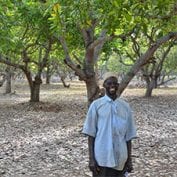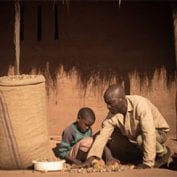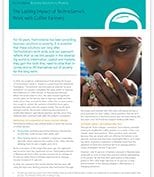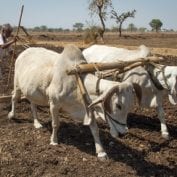How to Grow a Healthy Mango
As farmers from South Asia to East Africa to Latin America can attest, there is a lot of know-how and hard work behind those sweet and juicy fruits.
As farmers from South Asia to East Africa to Latin America can attest, there is a lot of know-how and hard work behind those sweet and juicy fruits.

TechnoServe is leading a sector-wide value chain approach aimed at strengthening and expanding the cashew sector into a more productive, competitive, sustainable, and inclusive economic growth engine for the people of Benin.
As the Sustainable Agricultural Improvement (MAS) project comes to a close in Honduras, we take a look at how the project helped one coffee farming family to build a strong farming business and promising career opportunities throughout the value chain.
As the world grapples with the immense question of how to slow climate change and limit its effects, part of the answer can be found on small farms.
It’s World Milk Day, and we at TechnoServe want to celebrate the important role that dairy animals and products can play in lifting communities out of poverty.

With financial support from the U.S. Department of Agriculture (USDA), TechnoServe implemented the MozaCajú project from 2013 to 2018, supporting the Mozambican cashew nut industry by harnessing global market demand for premium cashew and addressing obstacles throughout the value chain, including in the areas of production, inputs, processing, finance and marketing.
TechnoServe’s Country Director in Nicaragua shares important lessons learned from our work creating inclusive and productive coffee value chains in Central America.

Triple Line was contracted by TechnoServe to evaluate the impact of the East Africa Coffee Initiative (2008-11) in Rwanda, Kenya, Tanzania and Ethiopia with the objective of helping smallholder farmers to improve productivity and increase incomes.
Five years after completing a project to improve the livelihoods of coffee farmers in Rwanda and Ethiopia, TechnoServe asked researchers to return to participating communities and evaluate our lasting impact.

TechnoServe is working to improve rural livelihoods in India by creating profitable, bankable and self-sustaining commodity chains in the agriculture, livestock, and non-timber forest products value chains.